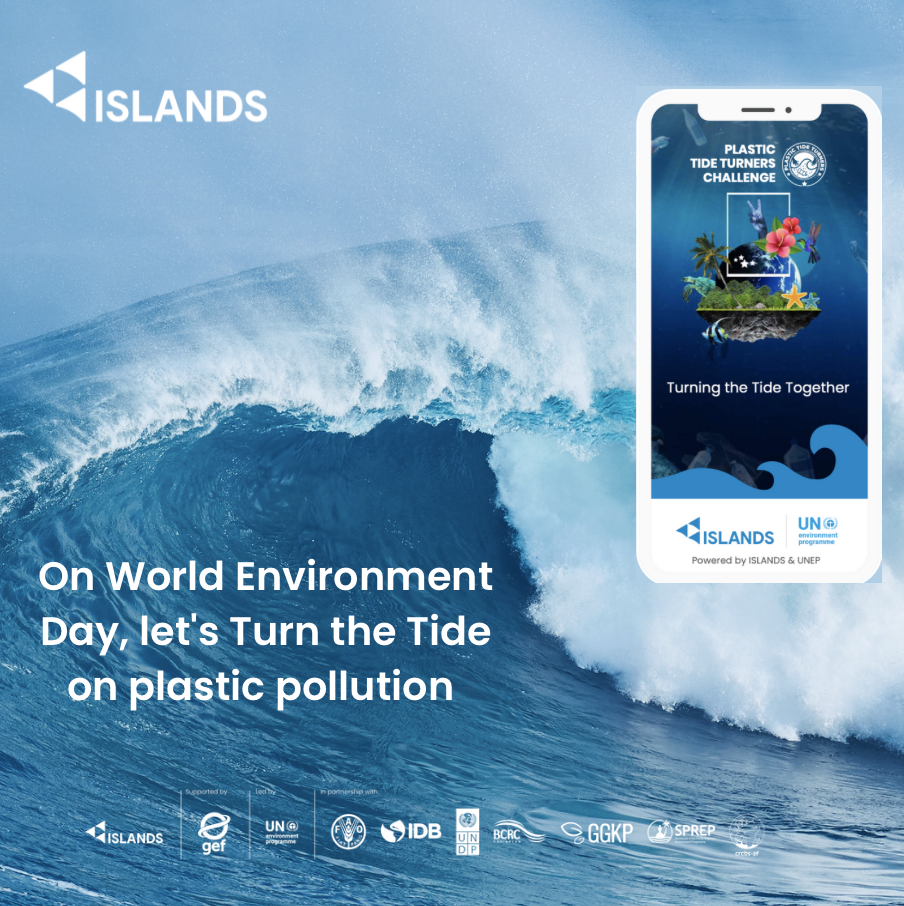
5 Steps to Build an Effective CSR Strategy
In today’s business landscape, Corporate Social Responsibility (CSR) has evolved from being a “nice-to-have” to ...

Tide Turners app – developed by the United Nations Environment Program (UNEP) – aims to help young people in Trinidad and Tobago, along with other small-island developing states, counter the damage done by plastic pollution.
The new app challenges users to record their plastics consumption and develop an action plan to reduce their use of the material.
Among other things, it encourages people to switch to reusable products and go plastic-free where possible, lifestyle changes that experts say can help stem the flow of plastic into the world’s oceans, which has reached crisis levels.
“The Tide Turners app is designed to empower young people to affect change,” said Llorenç Milà i Canals, the head of the UNEP-hosted Life Cycle Initiative, which works to counter plastic pollution. “By changing their own behaviors around plastic use and getting their friends, families and communities to do the same, young people can have a significant impact.”
The new app builds on UNEP’s Tide Turners Plastic Challenge Badge, which has so far engaged more than 500,000 young people involved in youth groups like the Scouts and the Guides. Along with calling on youth to use less plastic, it encourages them to start advocacy campaigns and raise awareness about the dangers of plastic pollution.
The app was developed under the UNEP-led ISLANDS Program, which is funded by the Global Environment Facility. The app includes a leader board and story-sharing functionality, allowing young people to track and share their progress in countering plastic pollution. The app was developed in collaboration with young people from small island developing states and is targeted at those aged 12–25.
Plastic pollution is a pressing issue that affects all small island developing states, a formally recognized group of 39 island nations. Every year, 19 to 23 million tons of plastic are dumped into the world’s oceans, rivers and lakes. Between 70 and 85 percent of marine litter in the Caribbean Sea comes from land, most of which consists of plastics.
Reducing plastic pollution, experts say, will take a concerted effort from governments, businesses and, critically, youth. Children account for around 30 percent of the population in small island developing states in the Caribbean, while people under the age of 25 account for up to 60 percent of the total population in some small island states.
Humanity produces around 430 million tons of plastic a year, two-thirds of which is contained in short-lived products that soon become waste. The social and economic costs of plastic pollution reach up to $600 billion per year. Exposure to plastics and microplastics can harm human health, and open burning of plastics contributes to air pollution and emissions of persistent organic pollutants.
“The Tide Turners app is an incredible tool that educates and empowers us to change the situation we face,” she says. “I am incredibly eager to be a part of this and share this experience with those in my life. With this app, we can and will work together to create the impact that we have wanted to see.”
اترك تعليقا